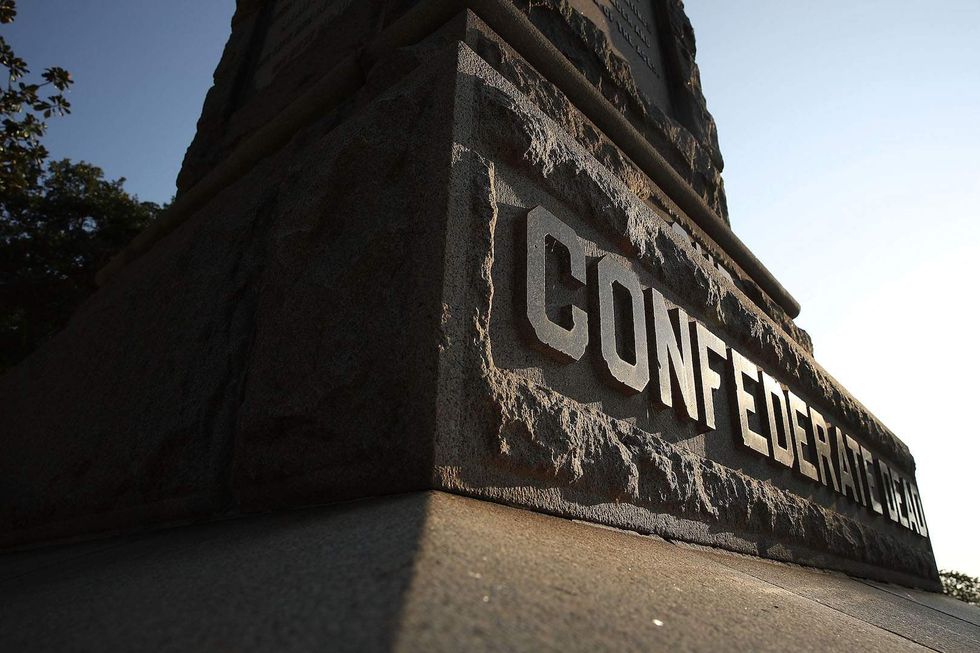
A Houston man was arrested for an attempt to detonate a Confederate monument with a homemade explosive. (Joe Raedle/Getty Images)

As if the angst and protest surrounding Confederate monuments wasn't already dangerous enough, a plot by a Houston man to detonate an explosive on a statue of Confederate soldier Dick Dowling was stopped by a park ranger, according to CNN.
How it happened
Andrew Schneck, 25, was kneeling down near the statue late Saturday night, holding small boxes, duct tape and wires when he was spotted by a park ranger. The ranger saw Schneck set the materials down, pour a bottle of what was found to be one of the world's most powerful explosives, nitroglycerin, on the ground by the statue.
When Schneck was apprehended, authorities also found him in possession of HMTD, a primary explosive that comes in powder form.
Had the ranger not noticed the suspicious activity, Schneck could have been successful in detonating the statue, which would have been a shocking escalation in the saga of Confederate monuments being taken down or moved from public spaces nationwide.
When the park ranger asked Schneck about what he was doing, he admitted to wanting to harm the statue because he didn't "like that guy."
Why it matters
A woman died during violence at a protest in Charlottesville, Virginia, that started over a statue of Confederate Gen. Robert E. Lee. Angry mobs have pulled statues down by force (and strangely, assaulted them once they were down).
Cities across the nation are debating what to do about statues honoring Confederate leaders and soldiers, as protests and backlash against them intensify.
The debate between those who view the statues as honoring history and those who view them as representing slavery, treachery and oppression doesn't appear to be near a resolution. Saturday's incident in Houston shows just how dangerous this issue can become.
What happens now
Schneck has been charged with attempting to maliciously damage property receiving federal financial assistance, and faces up to 40 years in prison and a fine of $250,000 if convicted.
Meanwhile, each community that is home to a Confederate monument is forced to decide what to do about these statues. The University of Texas and Duke University have both removed Confederate statues from their campuses over the last week. The city of Baltimore had its statues removed by officials overnight. Statues that remain are often vandalized.
How should these communities address these statues in a way that pleases constituents and preserves public safety? Comment below.